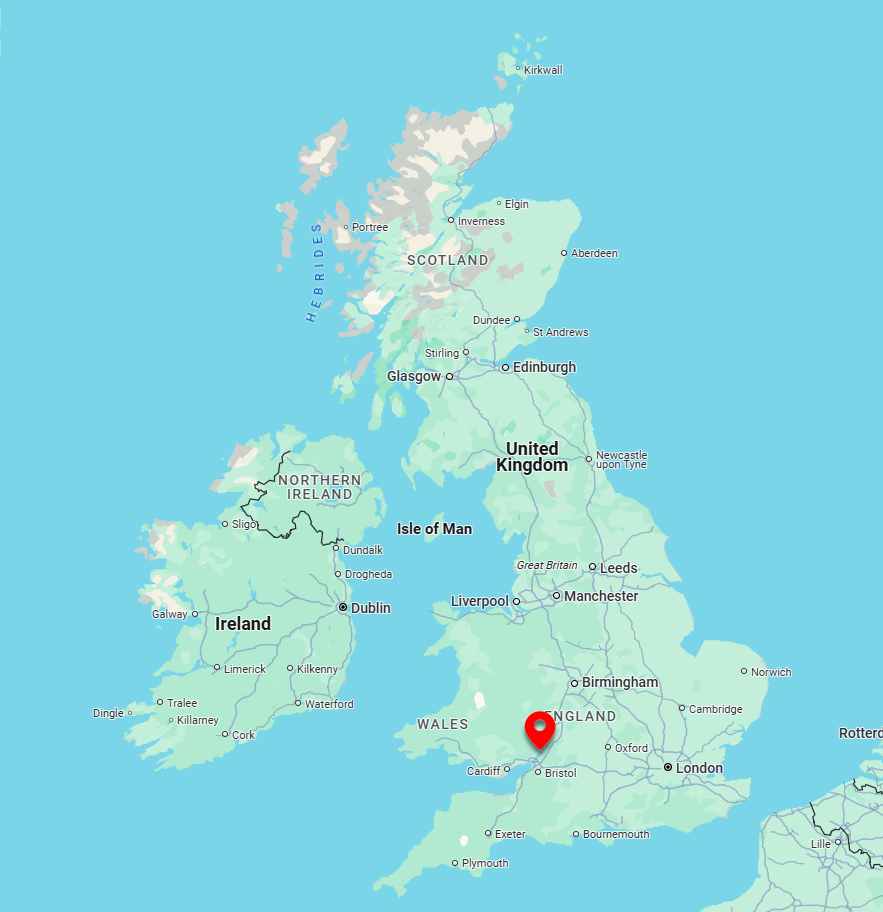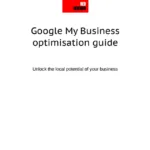In today’s digital world, visibility is everything. For UK businesses, appearing high in local search results is a game-changer. This is where local SEO, or local search engine optimisation, comes in. It’s about making sure your business is seen by customers in your area who are actively looking for your products or services. If you have a physical location or serve a specific local area, local SEO is essential for attracting nearby customers. Indeed, mastering local SEO is not just an advantage; it’s a necessity for sustained growth and customer engagement.
Why local SEO matters for UK businesses
Local SEO is incredibly important for UK businesses, no matter their size. Think about how people search for things today. Many use their smartphones to find businesses “near me.” If your business doesn’t show up, you’re missing out on a huge number of potential customers. Local search focuses on providing relevant results based on the user’s location. Therefore, optimising for local search can bring more foot traffic to your physical store or more inquiries for your local services. Consequently, businesses that prioritise local SEO often see a direct impact on their bottom line.
Consider a small café in Bristol or a plumbing service in Manchester. Their primary customers are in their local area. Effective local SEO ensures these businesses appear when someone nearby searches for “café near me” or “emergency plumber Manchester.” This targeted approach helps you connect with the right audience at the right time. Furthermore, local search results often include a map pack, which provides quick access to your business’s location, phone number, and reviews. This makes it incredibly easy for customers to find and contact you. Moreover, local SEO is particularly vital for service-based businesses, as many consumers search for local service providers when they have an immediate need.
The competition for online visibility is fierce, even at a local level. However, a well-executed local SEO strategy can give smaller businesses a significant edge over larger national competitors in specific geographic areas. By focusing on local search terms and optimising for local intent, you can capture a highly motivated audience. Ultimately, investing in local SEO means investing in the direct growth of your local customer base, ensuring your business remains competitive and accessible.
Optimising your Google My Business profile
Your Google My Business profile is arguably the most critical component of your local SEO strategy. It’s your business’s free public listing on Google, appearing in Google Search and Maps. Therefore, making sure it is fully optimised is paramount. Without a complete and accurate Google My Business profile, your business is less likely to appear in the vital “local pack” results, which are prominently displayed at the top of local search queries.
First, claim and verify your Google My Business listing. This is a non-negotiable step. Once verified, ensure all your business information is accurate and complete. This includes your business name, address, phone number, and1 website – often referred to as NAP details. Inconsistent NAP information can confuse search engines and harm your local search rankings. Consistency is key here; even minor variations can lead to lower visibility. Additionally, ensure your business hours are always up-to-date, especially for holiday periods.
Next, choose the most relevant categories for your business. This helps Google understand what your business does and show it to the right people. You can select one primary category and several additional categories. Upload high-quality photos of your business, products, and services. Businesses with photos receive more requests for directions and website clicks. Moreover, regularly update your profile with posts about offers, events, or news. This keeps your listing fresh and engaging for potential customers. For a deeper dive into optimisation, you can download our Google My Business optimisation guide: Unlock the local potential of your business. Furthermore, consider using the Q&A feature on your profile to answer common customer questions, demonstrating your responsiveness and expertise.
Building local citations and directories
Local citations are online mentions of your business’s NAP details. These can be on business directories, social media platforms, or other websites. The more consistent and numerous your citations are, the more trustworthy your business appears to search engines. Consequently, this can positively impact your local search rankings. Citations act as “votes of confidence” for your business’s existence and legitimacy in the eyes of search engines.
Start by listing your business on major UK directories like Yell, Thomson Local, and Yelp. Also, consider industry-specific directories. For instance, if you run a restaurant, listing on OpenTable or TripAdvisor is crucial. Ensure your NAP information is identical across all listings. Any discrepancies, even minor ones, can hurt your local SEO efforts. Regularly audit your existing citations to check for accuracy and update any outdated information. This ongoing maintenance is vital for sustained local search visibility. Building a robust citation profile takes time but yields significant benefits for your local SEO efforts. Moreover, look for opportunities to be mentioned in local news sites or community blogs, as these can provide powerful, high-authority citations.
Beyond the major directories, explore niche local directories relevant to your town or city. These often carry significant weight for local search. Think about local chambers of commerce, trade associations, or community websites. Each new, accurate citation reinforces your business’s presence online. Furthermore, actively manage your social media profiles, as these also contribute to your overall online presence and can act as valuable citations. A consistent and widespread online presence is fundamental to a strong local SEO strategy.
Creating geo-targeted website content
Beyond your Google My Business profile and citations, your website content plays a significant role in local SEO. Creating geo-targeted content helps search engines understand your local relevance. This means incorporating location-specific keywords naturally into your website. By doing so, you signal to search engines that your content is highly relevant to users searching in your specific geographic area.
For example, instead of just “web design services,” consider “web design services Gloucestershire” or “web design agency North East UK.” You can create dedicated service pages for each location you serve. Blog posts are also an excellent way to incorporate local keywords and demonstrate your expertise. Write about local news, events, or common problems faced by customers in your area and how your business solves them. This not only helps with local search but also provides valuable information to your local audience. If you’re interested in a complete guide to improving your website, explore our article on [Website development UK: A complete guide for businesses]. Furthermore, ensure your website has a clear contact page with your full NAP details prominently displayed, reinforcing your local presence.
Think about local landmarks, common phrases, or unique aspects of your community. Weave these into your content where appropriate. This helps create a more authentic and relatable experience for local visitors. For instance, a bakery in Cornwall might write about “traditional Cornish pasties in Truro.” This level of detail enhances your local SEO and connects with local customers on a deeper level. Remember, the goal is to provide valuable, location-specific information that resonates with your target audience. Consider creating a “local area served” page if you operate in multiple surrounding towns or districts.
Gathering local reviews
Customer reviews are incredibly influential for local SEO. They provide social proof and build trust with potential customers. Search engines also consider the quantity, quality, and recency of reviews when determining local search rankings. Positive reviews are a powerful endorsement of your business, while even negative reviews, when handled well, can demonstrate your commitment to customer service.
Encourage your satisfied customers to leave reviews on your Google My Business profile. Make it easy for them by providing clear instructions or a direct link. You might also consider sending follow-up emails after a service or purchase, gently requesting feedback. Respond to all reviews, both positive and negative, professionally and promptly. This shows that you value customer feedback and are engaged with your audience. Positive reviews can significantly boost your online reputation and attract more local customers. Furthermore, reviews often contain keywords that can further enhance your local search visibility.
Don’t shy away from asking for reviews. Many customers are happy to share their positive experiences but simply need a gentle nudge. Train your staff to mention reviews at the point of sale or service completion. Moreover, monitor review platforms regularly to stay on top of new feedback. Addressing negative reviews constructively can turn a potential detractor into a loyal customer. Remember, a consistent stream of new, positive reviews is much more impactful for local SEO than a large number of old ones.
Measuring local SEO success
Finally, it’s crucial to measure your local SEO efforts to understand what’s working and what needs improvement. Google Analytics and Google Search Console are invaluable tools2 for tracking your progress. These platforms offer a wealth of data to help you refine your strategies and maximise your local search impact.
Monitor your rankings for local keywords, website traffic from local searches, and Google My Business insights such as calls, direction requests, and website visits. Look at how many people are finding your business through local search results and how they interact with your Google My Business listing. By regularly analysing this data, you can refine your local SEO strategies and continue to attract more local customers online. For instance, if you notice a drop in direction requests, it might indicate an issue with your profile address or mapping. If you are an e-commerce business, you might also find our article, E-commerce SEO: Drive sales in the UK helpful.
Track your click-through rates from local search results and conversion rates for local traffic. Are local visitors calling your business, submitting forms, or making purchases? Understanding these metrics will help you determine the return on your local SEO investment. Set specific, measurable goals for your local SEO campaigns, such as increasing Google My Business calls by 15% within three months. Regular reporting and analysis are key to adapting your approach and ensuring continuous improvement in your local search performance.
Attract local customers online, ask Redcentaur to support your local SEO. Moreover, read our guide to Google My Business optimisation. Explore our local marketing success stories.
Further reading about local SEO
Website development UK: A complete guide for business
E-commerce SEO: Drive sales in the UK
Free downloadable PDF: Google My Business optimisation guide




